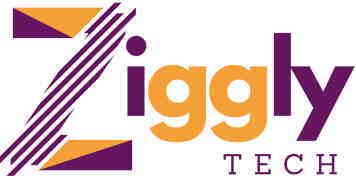In a world where technology reigns supreme, the concept of business has undergone a seismic shift. The advent of the digital age has given rise to a phenomenon known as digital business, redefining the way commerce is conducted and reshaping the global economy. The 24/7 availability of online platforms such as Vave Casino allows customers to shop, access services, and engage with businesses at their convenience.
With unprecedented connectivity, efficiency, and innovation, digital business has not only gained immense popularity but has become an integral part of our daily lives.
Defining Digital Business
Digital business refers to the utilization of digital technologies and platforms to conduct and optimize various business processes. It encompasses a wide spectrum of activities, from online transactions and digital marketing to data analytics and supply chain management. In essence, digital business leverages technology to enhance operational efficiency, customer experience, and overall competitiveness.
The Popularity Paradox
The popularity of digital business can be attributed to a convergence of factors that have reshaped the way society interacts with commerce:
- Global Connectivity: The internet has created a digital bridge connecting people, businesses, and markets across the globe. This unprecedented level of connectivity has opened doors for businesses of all sizes to tap into international markets and customer bases.
- Convenience and Accessibility: This convenience has led to a significant shift towards online shopping, digital payments, and virtual customer support.
- Cost Efficiency: Digital business models often reduce overhead costs associated with traditional brick-and-mortar operations. This cost efficiency allows startups and small businesses to compete on a level playing field with established enterprises.
- Data-Driven Insights: The digital landscape generates massive amounts of data that can be harnessed for insights and decision-making. Businesses can analyze consumer behavior, preferences, and trends, enabling them to tailor offerings and marketing strategies more effectively.
- Innovation and Disruption: Digital technologies have paved the way for disruptive innovations across industries. Companies that harness these innovations can differentiate themselves and create new market niches.
From E-Commerce to the Digital Ecosystem
E-commerce serves as a prime example of the proliferation of digital business. Online marketplaces have become the norm, where consumers can purchase anything from groceries to high-end electronics with a few clicks. However, digital business has evolved beyond e-commerce, giving birth to an expansive digital ecosystem.
- Fintech and Digital Payments: Fintech startups are transforming the financial landscape by offering seamless digital payment solutions, online banking services, and even cryptocurrency transactions.
- Sharing Economy and On-Demand Services: The sharing economy has introduced platforms that connect service providers directly with consumers. Ridesharing, food delivery, and home-sharing are all examples of how digital business models have transformed traditional industries.
- Cloud Computing and SaaS: Cloud-based services and Software-as-a-Service (SaaS) models provide businesses with scalable and cost-effective solutions for operations, collaboration, and data storage.
Challenges and Future Prospects
While the digital business landscape is brimming with potential, it also presents challenges. Data privacy concerns, cybersecurity threats, and the digital divide are issues that must be addressed to ensure the continued growth and sustainability of digital business.
Looking ahead, the trajectory of digital business is undeniably promising. As emerging technologies like artificial intelligence, 5G, and the Internet of Things continue to mature, they will fuel new waves of innovation, transforming industries in ways we can scarcely imagine.
A New Era of Entrepreneurship
One of the most remarkable aspects of the digital business revolution is its democratizing effect on entrepreneurship. Gone are the days when starting a business required substantial capital, physical storefronts, and complex supply chains. The digital landscape has given rise to the era of the “digital entrepreneur,” individuals who can create, market, and sell products and services with minimal resources and maximum creativity.
Platforms like Etsy, eBay, and Amazon Handmade have empowered artisans and craftspeople from remote corners of the world to reach a global audience. Social media platforms allow individuals to build personal brands and monetize their passions, whether that’s fashion, fitness, cooking, or gaming. The digital business ecosystem has transformed dreams into realities, enabling individuals to turn hobbies into income streams and ideas into startups.
Conclusion: Embracing the Digital Frontier
The popularity of digital business isn’t just a trend; it’s a fundamental shift that has redefined the very essence of commerce. From empowering entrepreneurs to connecting global communities, digital business is a force that’s reshaping economies, cultures, and societies. As the world becomes increasingly interconnected and technology continues to advance, embracing the digital frontier is not merely an option—it’s a strategic imperative for businesses and individuals alike.

0 comments